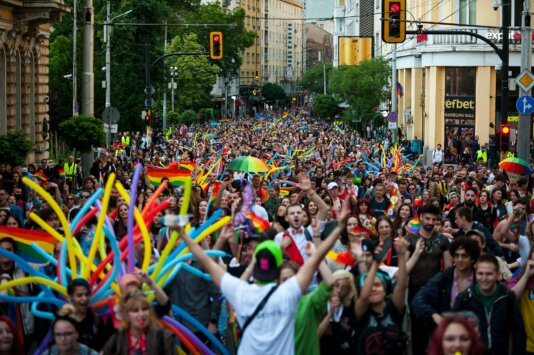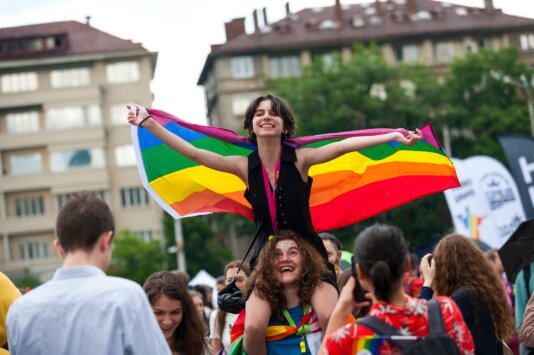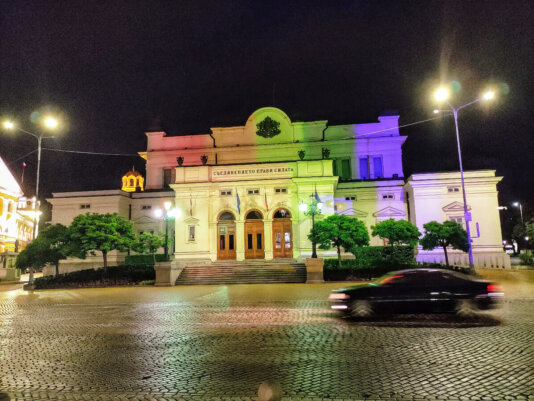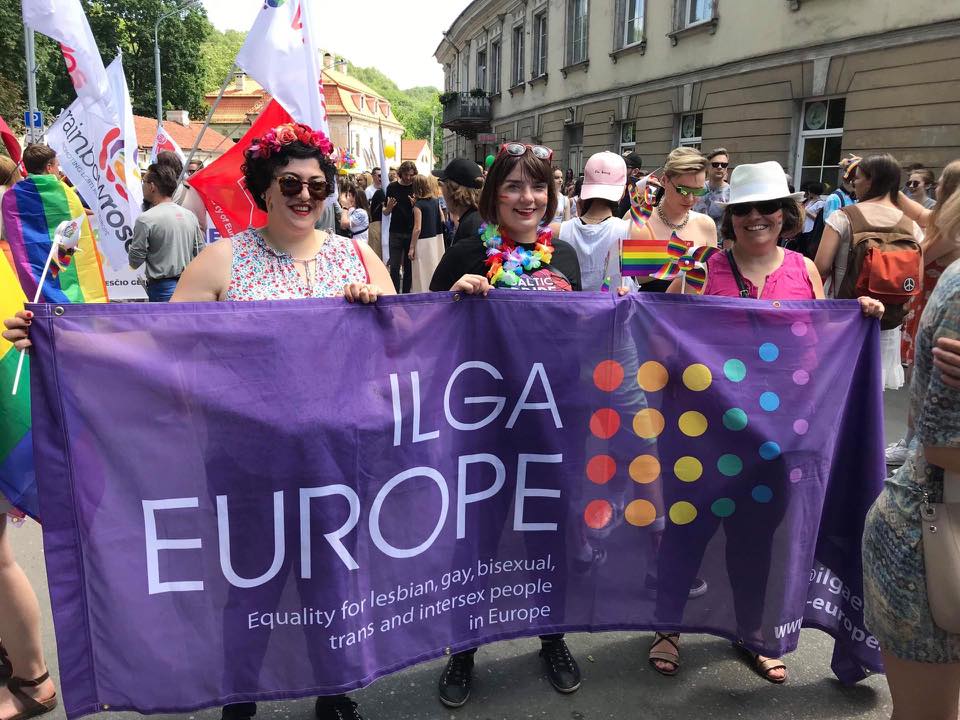- About
- Topics
- Story
- In-Depth
- Picks
- Opinion
- News
- Donate
- Signup for our newsletterOur Editors' Best Picks.Send
Read, Debate: Engage.
| June 30, 2021 | |
|---|---|
| topic: | LGBT Rights |
| tags: | #Bulgaria, #pride, #LGBTQ Rights, #Hungary, #uefa |
| located: | Bulgaria, Hungary, Germany, Bosnia and Herzegovina |
| by: | Katarina Panić |
Meanwhile in Bulgaria, a record 10,000 people took part in the 14th edition of Sofia Pride on 12 June).
"No violent interactions have been reported to us this year. This is a first for Pride as there have always been altercations during and mainly after Pride, where members of counter protesters would follow and attack participants on their way home,” Stana Iliev, campaigns manager at All Out and previous co-organiser of Sofia Pride, told FairPlanet.
Furthermore, the rainbow projection on the national parliament went without interruptions. The building's motto "unity makes us strong", was complemented with "hate makes us weak" by the activists.
"[B]eforehand, every single cultural event of Sofia Pride was disturbed or attacked by a mob of young hooligans from various nationalist and right-wing groups, screaming slurs or vandalising property,” Iliev added.
If one imagines switching these two cities, countries, regions - such news would barely make headlines. The border between East and West is the one that separates the level of achieved human rights, too, and delineates the growing wave of queerphobia.
"We have certainly seen the pandemic being instrumentalised to crack down on LGBT+ rights, usually where the attitude and political atmosphere has been complex beforehand anyway,” Iliev said. “Starting from sudden crackdowns in Ghana and Uganda, where lockdown measures have been used as a pretext to imprison LGBT+, to a rise in homeless LGBT+youth in south-east Europe because the tense family situation has escalated.”
Goran Zorić moved from Bosnia to Germany in the middle of the pandemic, partly because of his
sexual orientation. Even while living in Prijedor, he refused to hide under imposed heteronormativity. Now, in Berlin, he finally feels his sexual orientation is just his private matter.
"In Prijedor, I imposed on myself the coming out as a political act and as part of the struggle for the way of life I want to live,” Zorić told FairPlanet. “In my experience, it was not only my personal but the thing of the whole community.”
“ I also notice the difference in the motives of LGBT+ people to hang out,” he added. “Here it is predominantly the search for pleasure, while in Bosnia, there is a need for essential socialisation, a sense of belonging and protection.”
There are at least three reasons why violence was expected in the Sofia Pride march.
Firstly, it used to happen in previous years, and several events and protests have already been attacked this year. Secondly, there were four registered counter protests on the same day organised by conservative religious organisations and ultra-nationalist non-formal groups associated with football hooligans.
Thirdly, Bulgarians will be voting in snap elections on 11 July, after no party could form a government following the April 2021 round, and there has been a rise of right-wing, conservative parties and alliances at the expense of the left.
Yet, there are also at least three reasons why the violence did not take place in this year's Pride march, despite the concerns.
According to Stana Iliev, violent attacks neither scare nor prevent the activists from fighting for civil and human rights - or ever will. Secondly, Pride in Bulgaria would look very different without the support of international missions in the country and LGBTQ+ organisations worldwide. Thirdly, international pressure is also essential when it comes to security.
"Even as a member of the European Union, there are often concerning situations in which pressure by other member states have proven very helpful," Iliev claimed.
Talking about the situation in the country, Iliev explained that big, ‘relevant’ parties in Bulgaria - regardless of whether they are liberal, left, right-wing or centre - do not include LGBTQ+ rights in their platform.
"More liberal parties are indeed afraid to touch the topic yet, and they are also not prepared or informed enough to articulate their support,” she added.
Back to European Football Championship, German authorities condemned UEFA's decision as shameful. So did many other western governments, as well the human rights activists and LGBTQ+ communities. The Hungarian government was the only one to welcome it, saying “common sense prevailed," by rejecting "the political provocation.” UEFA said it wants to keep its political and religious neutrality.
However, claiming one is neutral on whether they stand for human rights or support their violation does seem like picking a side. The one that does not fit the fair play.
Image: Sofia Pride.
By copying the embed code below, you agree to adhere to our republishing guidelines.




